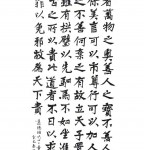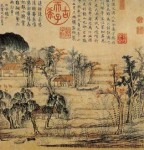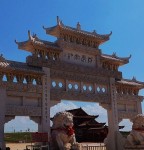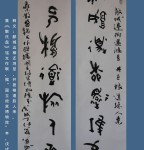| Article Index |
|---|
| The Dragon's Embrace - China's Soft Power Is a Threat to the West |
| Part 2: How China Cultivates Relations with the World |
| All Pages |
Former Chinese Foreign Minister Qian Qichen once told me, half with amusement and half with resignation, that military people around the world are all more or less the same. "They can only be happy when they have the most up-to-date toys," he said.
If this is true, Beijing's generals must be very happy at the moment. China has increased its military budget by 7.5 percent in 2010, making funds available for new fighter jets and more cruise missiles. Beijing's military buildup is a source of concern for Western experts, even though the US's military budget is about eight times larger. Some feel that China poses a threat to East Asia, while others are even convinced that Beijing is preparing to conquer the world militarily.Nothing could be further from the truth. Unlike, say, the United States, the People's Republic has not attacked any other country in more than three decades, not since it launched an offensive against Vietnam in 1979. And even though Beijing's leaders periodically rattle their sabers against Taiwan, which they refer to as a "renegade province," they have no intention of entering into any armed conflicts.
Unlike many in the West, they have long since recognized that bombs are little more than deterrents these days. In today's asymmetric conflicts, it is difficult to hold on to territory captured in bloody battles. War is an instrument of the past, and Mao's argument that "political power grows out of the barrel of a gun" no longer holds true today.Soft Is the New Hard
It is, however, true that the Chinese are in the process of conquering the world. They are doing this very successfully by pursuing an aggressive trade policy toward the West, granting low-interest loans to African and Latin American countries, applying diplomatic pressure to their partners, pursuing a campaign bordering on cultural imperialism to oppose the human rights we perceive to be universal, and providing the largest contingent of soldiers for United Nations peacekeeping missions of all Security Council members. In other words, they are doing it with soft power instead of hard power.
Beijing is indeed waging a war on all continents, but not in the classical sense. Whether the methods it uses consistently qualify as "peaceful" is another matter. For example, the Chinese apply international agreements as they see fit, and when the rules get in their way, they "creatively" circumvent them or rewrite them with the help of compliant allies.
But why are politicians in Washington, Paris and London taking all of this lying down, kowtowing to the Chinese instead of criticizing them? Does capturing -- admittedly lucrative -- markets in East Asia and trying to impress the Chinese really help their cause?
The Communist Party leaders manipulate their currency to keep the prices of their exports artificially low. The fact that they recently allowed their currency, the renminbi, to appreciate slightly is evidence more of their knack for public relations than of a real change of heart. They are known for using every trick in the book when buying commodities or signing pipeline deals, with participants talking of aggressive and pushy tactics. Meanwhile, these free-market privateers unscrupulously restrict access to their own natural resources. They denounce protectionism, and yet they are more protectionist than most fellow players in the great game of globalization.
'21st-Century Economic Weapon'
Beijing recently imposed strict export quotas on rare earths, resources that are indispensable in high technology, where they are essential to the operation of hybrid vehicles, high-performance magnets and computer hard drives. Some 95 percent of metals such as lanthanum and neodymium are mined in the People's Republic, giving Beijing a virtual monopoly on these resources. It clearly has no intention of exporting these metals without demanding substantially higher export tariffs. In fact, China apparently wants to prohibit exports of some rare earths completely, starting in 2015. Concerned observers in Japan have described the valuable resources are a "21st-century economic weapon." The Chinese have dismissed protests from Washington and Brussels with the audacious claim that World Trade Organization (WTO) rules allow a country to protect its own natural resources.
China, a WTO member itself, is now playing a cat-and-mouse game with the organization. Despite several warnings, Beijing still has not signed the Agreement on Government Procurement, and it continues to strongly favor domestic suppliers over their foreign competitors in government purchasing. To secure a government contract in China, an international company has to reveal sensitive data as part of impenetrable licensing procedures and even agree to transfer its technology to the Chinese -- often relinquishing its patent rights in the process.
China, for its part, is waging a vehement campaign in the WTO to be granted the privileged status of a "market economy." If it succeeds, it will be largely spared inconvenient anti-dumping procedures in the future. But do China's Communist Party leaders seriously believe that the rest of the world will actually reward them for their dubious trading practices?
The answer is yes, and they have good reason to be optimistic. When it comes to diplomacy, Beijing knows how to win. Whether it's at the WTO, the United Nations or other international organizations, China is in the process of outmaneuvering the West everywhere.
| < Prev | Next > |
|---|
- 2011-04-23 - Ouyang Xun, one of the Four Great Calligraphers of Early Tang Dynasty
- 2011-04-07 - Chu Suiliang 褚遂良, one of the Four Great Calligraphers of Early Tang Dynasty
- 2011-01-07 - 文徵明行书《明妃曲》
- 2010-12-20 - Philosophy About Chinese Calligraphy
- 2010-08-10 - Laozi (Lao-tzu, fl. 6th C. BCE)
- 2010-06-04 - Aesthetics & Philosophy About Chinese Calligraphy
- 2010-04-19 - The Core of Chinese Culture
- 2010-03-12 - Bringing it All Back Home: Chu Teh-Chun at NAMOC













